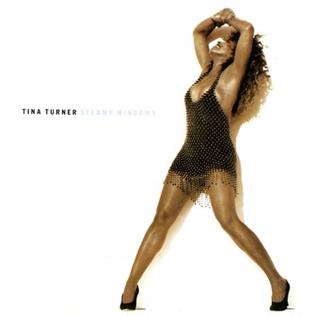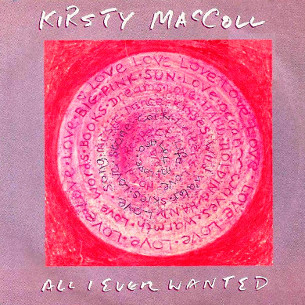
David Ian "Joe" Jackson is an English musician, singer and songwriter. Having spent years studying music and playing clubs, he scored a hit with his first release, "Is She Really Going Out with Him?", in 1979. It was followed by a number of new wave singles, before he moved to more jazz-inflected pop music and had a top 10 hit in 1982 with "Steppin' Out". Jackson is associated with the 1980s Second British Invasion of the US. He has also composed classical music. He has recorded 20 studio albums and received five Grammy Award nominations.

Forty Licks is a double compilation album by the Rolling Stones. A 40-year career-spanning retrospective, Forty Licks is notable for being the first retrospective to combine their formative Decca/London era of the 1960s, now licensed by ABKCO Records, with their self-owned post-1970 material, distributed at the time by Virgin/EMI but now distributed by ABKCO's own distributor Universal Music Group. Four new songs are included on the second disc. The album was a commercial success, as it reached No. 2 on both UK and US charts. Concurrently with the album's release, the Stones embarked on the successful, year-long international Licks Tour, which would result in the subsequent Live Licks album being released in 2004.

"London Calling" is a song by the British punk rock band the Clash. It was released as a single from the band's 1979 double album of the same name. This apocalyptic, politically charged rant features the band's post-punk sound, electric guitar and vocals.

"I Want You" is a song recorded by American singer Janet Jackson for her eighth studio album, Damita Jo (2004). It was released on February 22, 2004 as the second single from the album, by Virgin Records. It was written by Harold Lilly, Kanye West, and John Legend, while it was produced by West, Jimmy Jam & Terry Lewis, and Jackson. The mid-tempo ballad consists of a retro sound and arrangement, paying homage to the classic pop sound of the Motown era. Its composition is based on Jackson's passion and desire for an estranged lover. "I Want You" is notable for being among the first singles produced with West and co-written by Legend, who were both upcoming artists at the time.

"Messin' with the Kid" is a rhythm and blues-influenced blues song originally recorded by Junior Wells in 1960. Chief Records owner/songwriter/producer Mel London is credited as the songwriter. Considered a blues standard, it is Junior Wells's best-known song. "Messin' with the Kid" was inducted into the Blues Hall of Fame and has been recorded by a variety of blues and other artists.

Blaze of Glory is the debut solo studio album by Jon Bon Jovi, the frontman of Bon Jovi. The album was released on August 7, 1990, through Mercury Records. It includes songs from and inspired by the movie Young Guns II. Emilio Estevez originally requested Bon Jovi's "Wanted Dead or Alive" as the theme song for his upcoming Billy the Kid sequel, but Jon Bon Jovi ended up composing an all-new theme song for the film's soundtrack instead.

"Blaze of Glory" is the debut solo single of American singer-songwriter Jon Bon Jovi. It reached No. 1 on the US Billboard Hot 100 and Album Rock Tracks charts in 1990, becoming his only chart-topper away from his band Bon Jovi. "Blaze of Glory" also topped the Australian, Canadian, and New Zealand singles charts and reached No. 13 on the UK Singles Chart.

"Maneater" is a song by American duo Hall & Oates, featured on their eleventh studio album, H2O (1982). It reached number one on the Billboard Hot 100 chart on December 18, 1982. It remained in the top spot for four weeks, more than any of the duo's five other number-one hits, including "Kiss on My List", which remained in the top spot for three weeks.

Blaze of Glory is the tenth studio album by English rock and roll singer Joe Jackson, released in 1989. Jackson has stated that the album and the songs themselves were an examination of his generation as the 1980s were ending, ranging from the optimism of the 1950s to the politics of terrorism and the Cold War, to yuppies ("Discipline") and rockers who are well past their prime. The title track compares the legacy of a classic rock musician who died young with the current wannabes.

Body and Soul is the seventh studio album by English singer-songwriter Joe Jackson, released on 14 March 1984 by A&M Records. Jackson's first fully digital project, it peaked at No. 14 in the UK, while in the US it reached No. 20. Described by one reviewer as a sophisti-pop album, the tracks are a mix of pop, jazz and Latin music, showcasing the hit single "You Can't Get What You Want ". Two other singles fared well, with "Happy Ending" charting in five countries, and "Be My Number Two" enjoying moderate success in the UK.

"I Can't Stand the Rain" is a song originally recorded by Ann Peebles in 1973, and written by Peebles, Don Bryant, and Bernard "Bernie" Miller. Other notable versions were later recorded by Eruption, Graham Central Station, Tina Turner and Lowell George. The original version is ranked at 197 on Rolling Stone's 500 Greatest Songs of All Time.

"Steamy Windows" is a song by American-Swiss singer Tina Turner. It was included on Turner's seventh studio album, Foreign Affair (1989), and released as the album's second single in November 1989. In the United Kingdom, it was instead issued as the third single on February 5, 1990. It was written by Tony Joe White and produced by Dan Hartman. It became a top ten hit in Belgium, Ireland and Italy, while reaching the top forty on the majority of all charts it appeared on.

Live 1980/86 is a Joe Jackson double live album, released in May 1988. It was recorded during the 1980 Beat Crazy tour, the 1982-83 Night and Day tour, the 1984 Body & Soul tour, and the 1986 Big World tour. Notably, the album contains three different versions of "Is She Really Going Out with Him?"

"Happy Ending" is a song by British singer-songwriter and musician Joe Jackson, which was recorded as a duet with Elaine Caswell and released in April 1984 as the second single from Jackson's sixth studio album Body and Soul. The song was written by Jackson, and produced by Jackson and David Kershenbaum. "Happy Ending" reached No. 58 in the UK Singles Chart and No. 57 on the US Billboard Hot 100.

"Nineteen Forever" is a song by British singer-songwriter and musician Joe Jackson, which was released in 1989 as the lead single from his eighth studio album Blaze of Glory. It was written and produced by Jackson. "Nineteen Forever" reached No. 4 on the US Billboard Modern Rock Tracks and No. 16 on Billboard Album Rock Tracks charts.

"Stranger than Fiction" is a song by British singer-songwriter and musician Joe Jackson, which was released in 1991 as the lead single from his ninth studio album Laughter & Lust. It was written by Jackson, and produced by Jackson and Ed Roynesdal. "Stranger than Fiction" reached No. 53 in Germany, No. 71 in the Netherlands, and No. 79 on Canada's RPM 100 Singles chart. A music video was filmed to promote the single.

"The Edge of Glory" is a song by American singer Lady Gaga from her second studio album, Born This Way (2011). The song was released on May 9, 2011, as the album's third single. Initially released as one of two promotional singles for Born This Way, it shortly became a single following its success in digital outlets worldwide. The song was written and produced by Gaga and Fernando Garibay, and is a pop, electro-rock, and disco song that speaks of the last moments of life. According to Gaga, lyrical inspiration came from the death of her grandfather, who died in September 2010. Along with a saxophone solo played by Clarence Clemons, the melody of the song resembles much of the musical works of Bruce Springsteen, and contains several qualities similar to that of 1980s adult contemporary musical works.

This page lists albums, singles, and compilations by the musician Joe Jackson. Jackson's recording career as a solo artist began in 1979, with the release of his debut album Look Sharp!. The album was recorded with the Joe Jackson Band, with whom he would release two more albums, I'm the Man and Beat Crazy, the latter of which was credited to the full band rather than simply Jackson.

The Rolling Stones in Mono is a box set by the English rock band the Rolling Stones, released by ABKCO Records in September 2016. It contains most of the group's British and American studio albums from the 1960s in mono format, on fifteen compact discs or sixteen vinyl records. All tracks were remastered using the Direct Stream Digital process by Bob Ludwig. The original recordings were produced by Andrew Loog Oldham, Jimmy Miller and the Rolling Stones.

"All I Ever Wanted" is a song by British singer-songwriter Kirsty MacColl, which was released in 1991 as the third and final single from her third studio album Electric Landlady. It was written by MacColl and Marshall Crenshaw, and produced by Steve Lillywhite.




















